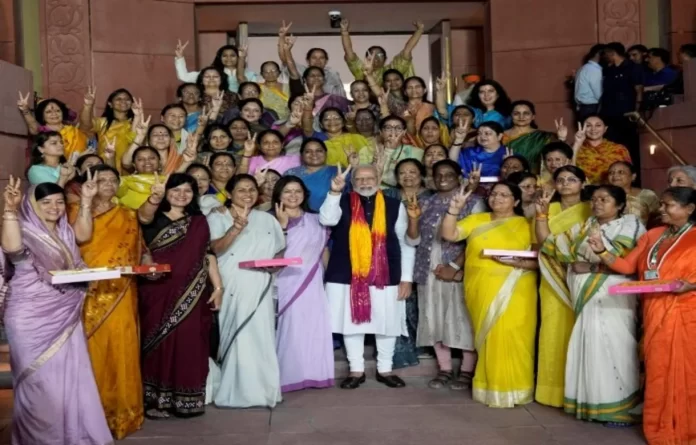The Supreme Court today refused to entertain a plea lodged by an advocate seeking an urgent and time bound implementation of the women’s reservation law. The law provides 33% reservation of seats in the Lok Sabha and state assemblies for women.
A bench comprising Justice Sanjiv Khanna and Justice Dipankar Datta refused to entertain the plea but granted liberty to the petitioner, advocate Yogamaya MG to file an intervention petition in a pending Public Interest Litigation (PIL) lodged by Congress leader Jaya Thakur.
The Supreme Court bench stated that they do not want multiplicity of litigation in the matter. The court added that the petitioner can lodge an intervention application in the petition filed by Congress leader Jaya Thakur.
The advocate who appeared for Yogamaya requested the apex court to allow the petitioner to withdraw the petition. Subsequently, the apex court bench agreed to the submission and allowed it to be withdrawn.
The petition seeking urgent implementation of the women’s reservation bill contended that there is an urgent need for timely implementation of the new law in the upcoming Lok Sabha elections because, without expeditious action, its intended benefits for women in the political arena will be lost.
The plea mentioned that the Women’s Reservation Act, 2023 was passed with uncertainty in its implementation. It added that the petitioner seeks the intervention of the Supreme Court to ascertain that the Constitutional mandate of fair representation for women is expeditiously realised.
The women’s reservation law, which is officially known as Nari Shakti Vandan Adhiniyam, provides for reservation of one-third of the seats in the Lok Sabha and all state assemblies for women. However, the law will not be implemented immediately.
Notably, the law will come into force only after a new census has been carried out, based on which delimitation will be undertaken to reserve seats for women. The Women’s Reservation Bill became law in India after President Droupadi Murmu gave her assent on September 29, 2023, days after the historic vote in the Parliament.


